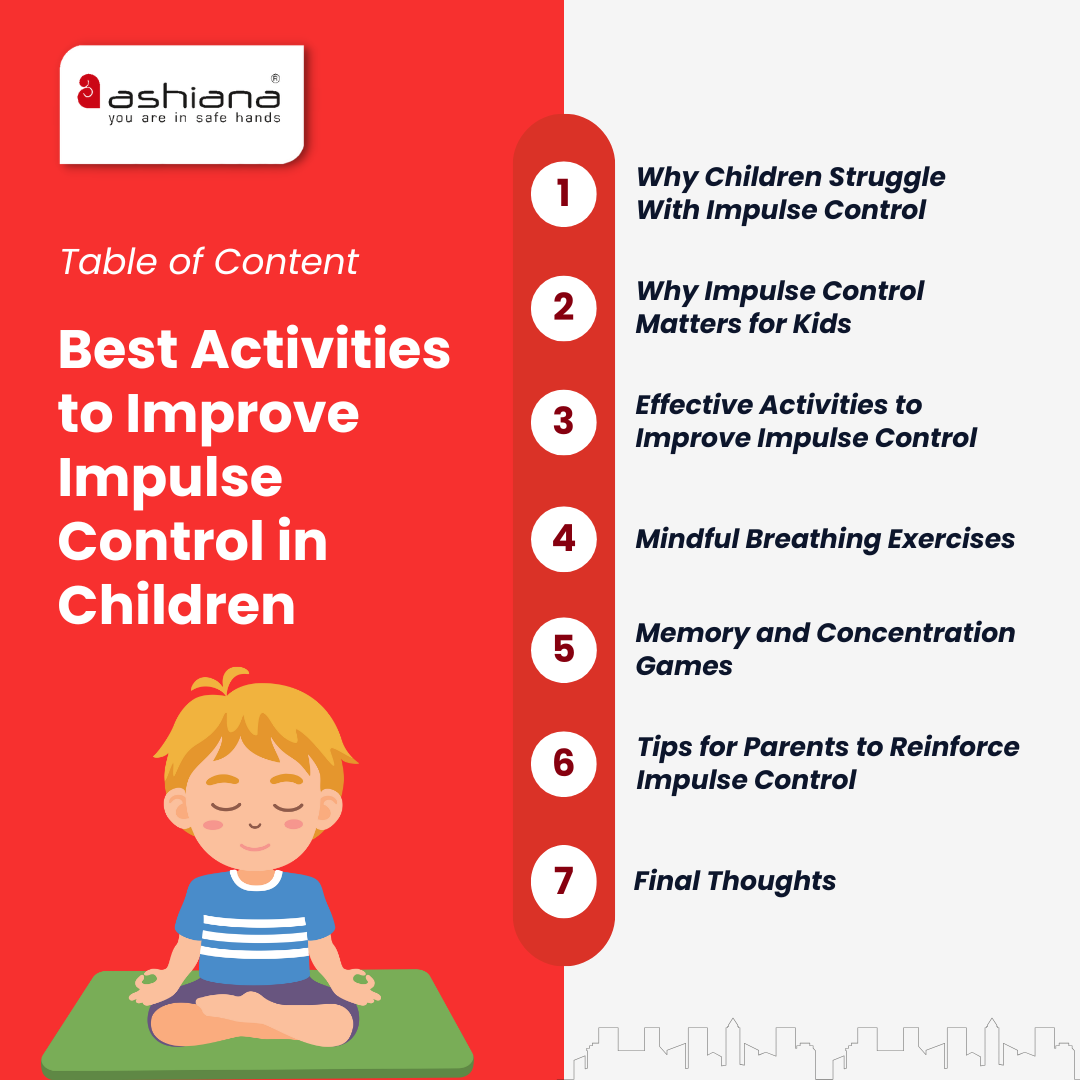

Impulse control is the ability of a child to pause, think, and manage their actions and emotions before reacting.
Children can begin practicing basic self-regulation skills as early as 2-3 years old, with more structured activities introduced around ages 4-6.
Parents can use games, role-playing, mindfulness exercises, and consistent guidance to help children manage impulsive behavior.
Yes, structured activities that reinforce patience, reflection, and self-regulation can benefit children with impulsive tendencies or behavioral challenges.
Improvements vary by child, but consistent practice, patience, and positive reinforcement typically show noticeable progress within a few weeks to months.
Ashiana, Ashiana Housing build homes. Homes surrounded by vast green spaces and fresh breeze. Homes cocooned in secured gated complexes. Homes where futures are forged and there are opportunities to grow. And Homes in environments brimming with healthy activity, trust and respect. At heart, we build communities with care.
Other posts by Ashiana
Join 1000+ of fellow readers. Get expert real estate knowledge straight to your inbox absolutely free. Just enter your email address below.